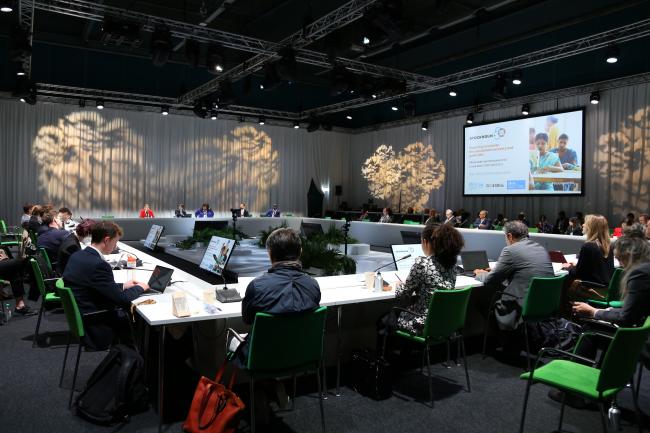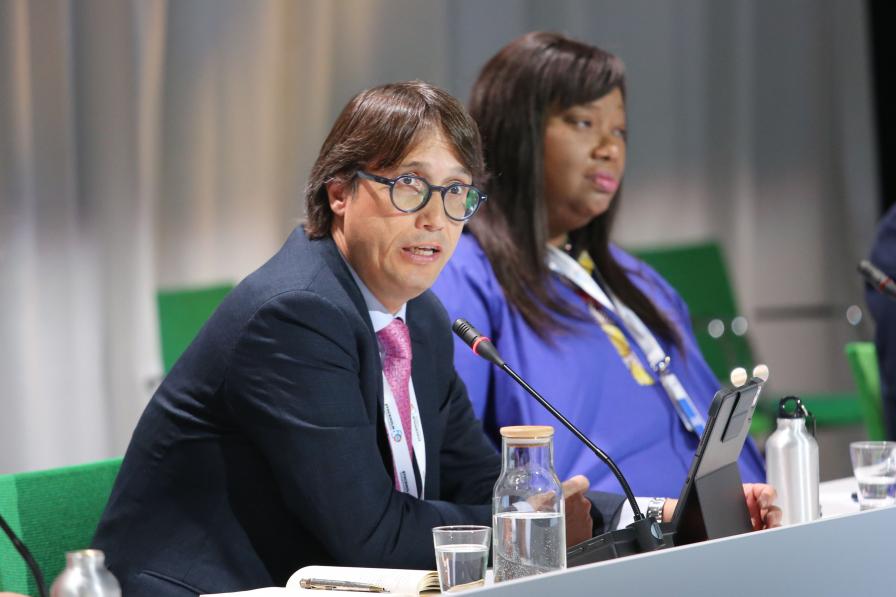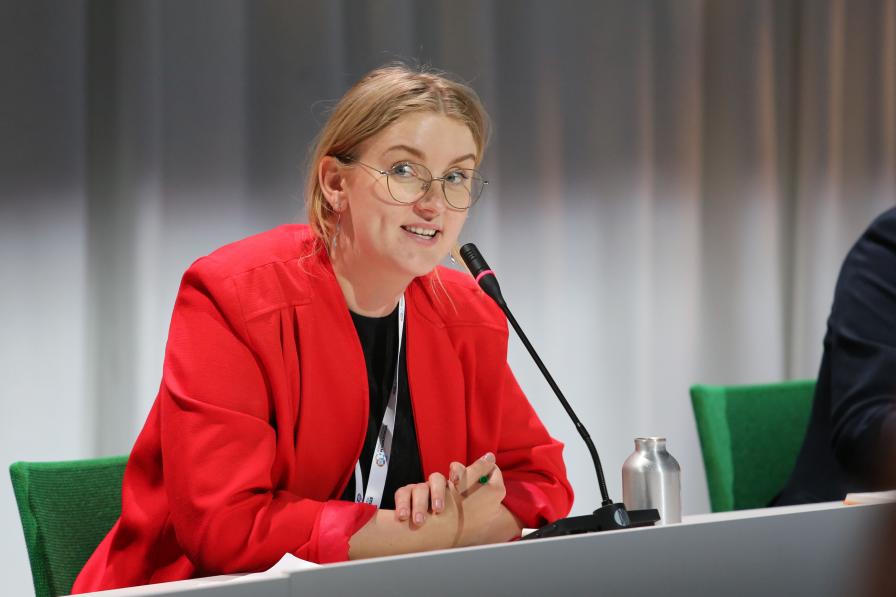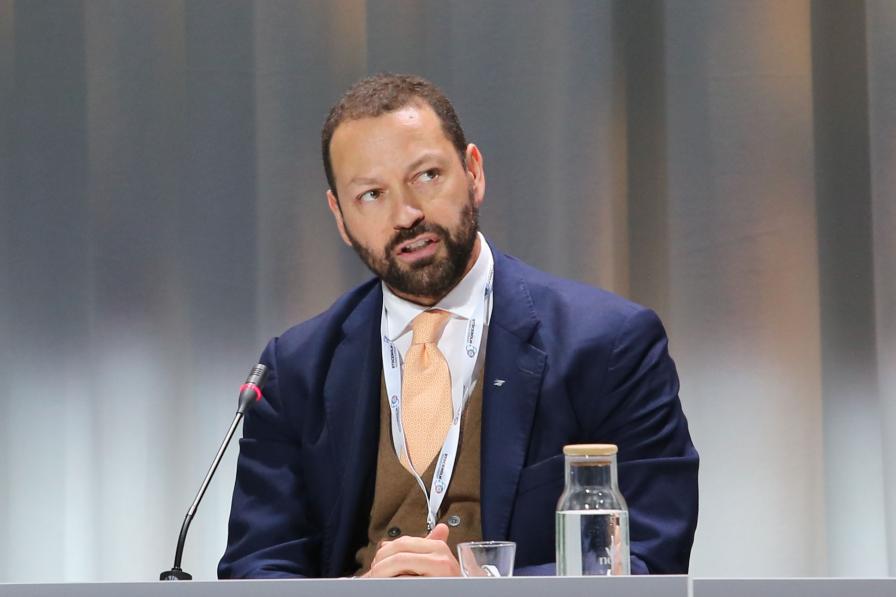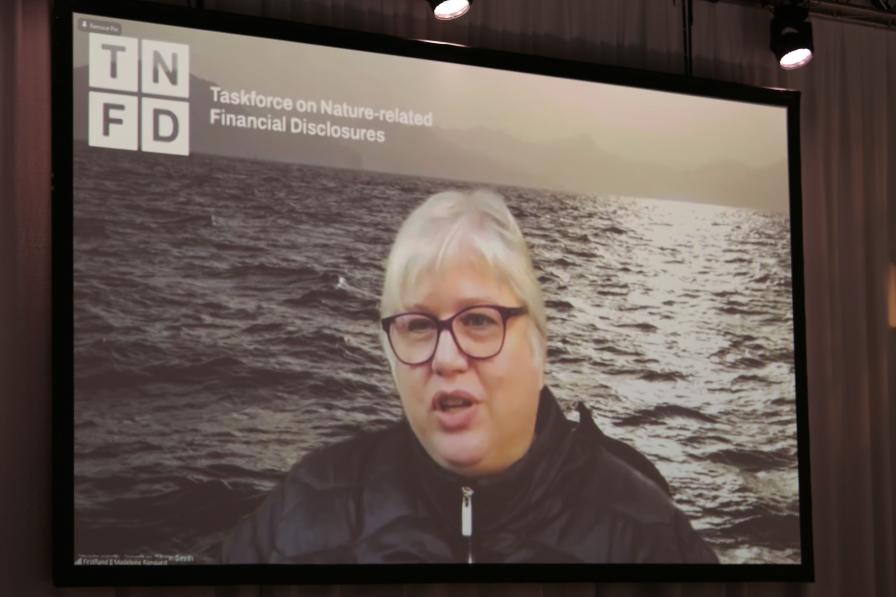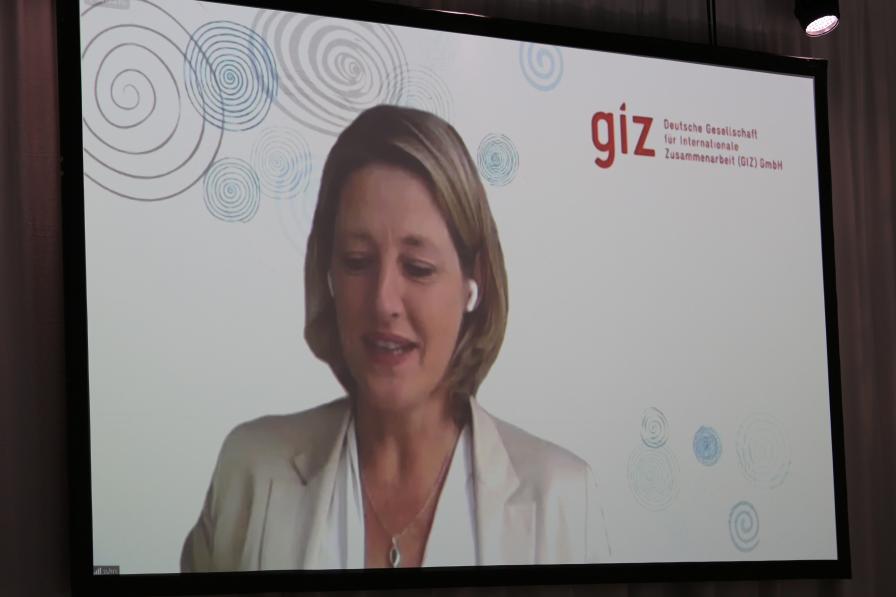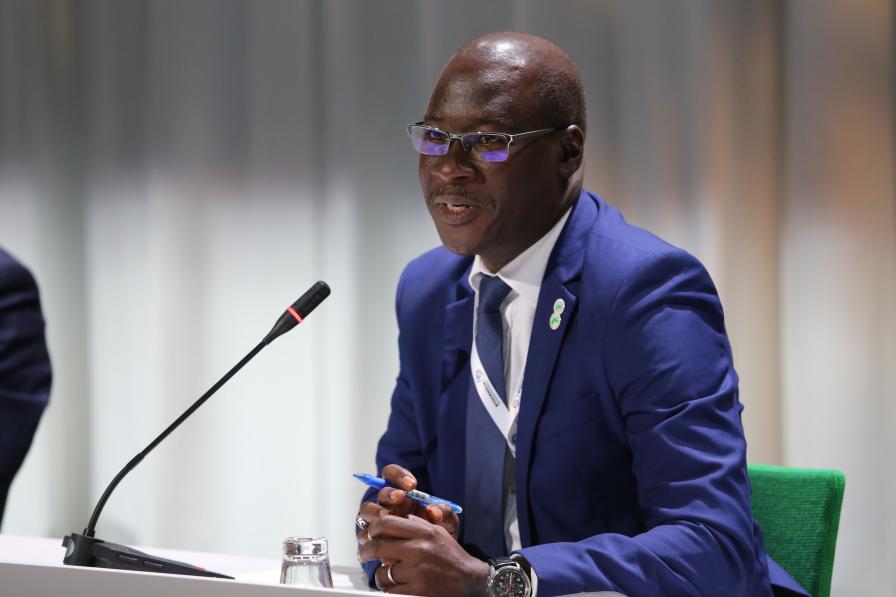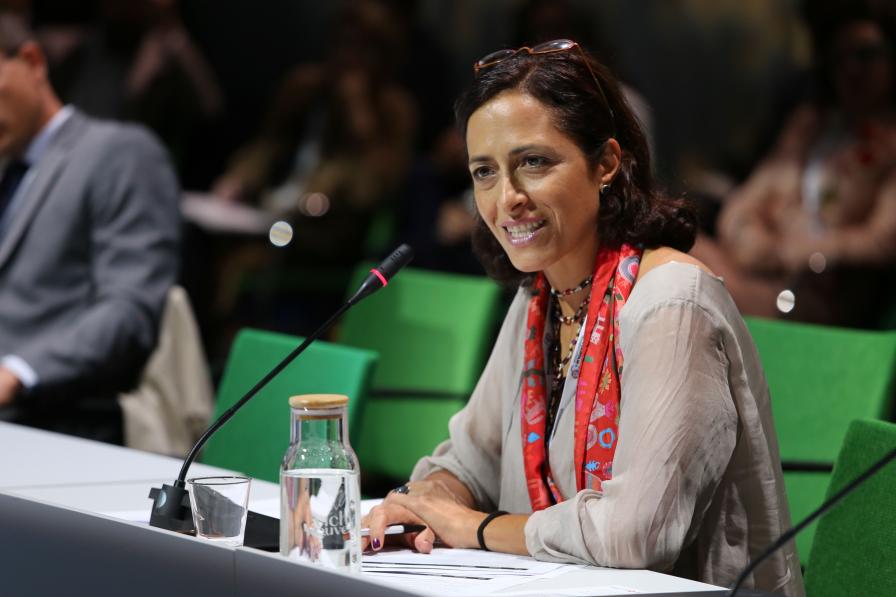About
Despite encouraging recent progress, the financial sector has been “a bit slow” to fully embrace circular economy initiatives. Speakers shared ways to accelerate the change.
Organized by: Global Opportunities for Sustainable Development Goals (Go4SDGs), UN Environment Programme (UNEP) Finance Initiative, German Ministry of Environment, and International Labour Organization (ILO).
This side event, moderated by Adriana Zacarias-Farah, Head, Go4SDGs, UNEP, discussed ways to promote circular economic models, including: retaining the value of materials and products, and keeping them in the economy; phasing out waste and pollution; and regenerating natural systems. Participants discussed ways to move away from the current “take, make, and dispose” extractive industrial model, towards a circular pathway that will contribute towards achieving the SDGs.
Noting that half of world’s cumulative gross domestic product (GDP) depends on nature, which makes it our most precious asset, Sonja Leighton-Kone, Acting Deputy Executive Director, UNEP, highlighted our collective failure to understand that nature underpins our entire economic system. She urged restructuring our economies away from linear and extractive models and towards regenerative and circular ones. She said the financial sector has been “a bit slow” in its initiatives, and stressed that, despite encouraging recent progress, more must be done. She highlighted the upcoming report “Financing Circularity in Latin America and the Caribbean,” and underscored that “if we are to achieve the SDGs, the future must be circular.”
Massimiano Tellini, Director, Global Head, Circular Economy, Intesa Sanpaolo Innovation Center, focused on financing new business models that support a more regenerative approach. He stressed that the circular economy has a positive impact regarding derisking as it lowers companies’ credit default risk. He emphasized that redesigning is at the core of the circular economy, calling for effective and innovative nature-based solutions.
Ricardo De Vecchi Galindo, Head of Public-Private Partnerships, Inter-American Development Bank (IDB), discussed the role of development banks, sharing experiences from Latin America. He noted that 11 out of 26 countries in the region have circular economy strategies embedded in their nationally determined contributions (NDCs), underscored the lack of sufficient regulatory frameworks to facilitate knowledge sharing and help small and medium enterprises. He highlighted a three-pillar approach to enable the transition, fostering the adoption of circular economy and unleashing the necessary financial resources.
Mette Grangaard Lund, Technical Officer Green Jobs, ILO, called for a human-centered approach to the circular economy, emphasizing that by successfully transitioning towards circular models, 78 million jobs will potentially be created by 2030, while 71 million jobs will also be lost. She called for considering the social justice element of the transformation. She highlighted the need for guiding principles, policy coherence, inclusive dialogues, and intergenerational and gender equality for a just transition, and urged including human-centered elements in financing efforts for the circular economy.
Arona Soumare, Climate Change and Green Growth Officer, African Development Bank (AfDB) and Secretariat of the African Alliance on Circular Economy, discussed tools for mainstreaming efforts towards circular economic models. He noted that the NDCs submitted by African countries offer investment opportunities towards a circular economy and urged aligning these efforts with climate change initiatives. He called for policy cohesion and capacity-building support and focused on specific sectors, including packaging and the textile industry.
Madeleine Ronquest, Head of Environmental and Social Risk and Climate Change, FirstRand, via video, focused on sustainable agriculture and relevant work in South Africa. She shared insights of highly circular practices on the ground already in place, highlighting examples of dairy farms, operating on solar energy, creating sustainable jobs, and engaging in zero waste packaging and water reuse. She called for supporting these initiatives, partnering with them in their sustainability efforts, and further focused on waste management, noting the potential for quick wins if people think creatively and outside the box.
Katja Suhr, Head of the Circular Economy team, German Agency for International Cooperation (GIZ), via video, highlighted a report launched by GIZ during Stockholm+50 on financing for a circular economy in low- and middle-income countries. She stressed that circular economy is a very broad topic and discussed the report’s main findings. She underscored the need for a level playing field for circular economy, including a regulatory framework, risk reduction, and access to finance; stressed that technical and financial cooperation is key; and highlighted the role of capacity building, including for the private sector so more businesses can orientate towards innovation. Discussing the best instrument to finance the transition towards a circular economic model, she stressed no one size fits all, noting the need to carefully consider sectoral needs and think innovatively.
Julia Sidyk, UNEP Children and Youth Major Group, underscored the importance of youth as stakeholders to make the transition just and equitable and drew attention to relevant work on sustainable consumption, and the need to enable access to education, especially for marginalized youth.
Contact:
Adriana Zacarias Farah | adriana.zacarias@un.org
More information:
UNEP report on Financing Circularity: Demystifying Finance for the Circular Economy
UNEP report on Circular Economy in Latin America and the Caribbean: A Shared Vision
UNEP report on report Circular Economy as a Cornerstone for Meeting the Goals of the Paris Agreement
To receive free coverage of global environmental events delivered to your inbox, subscribe to the ENB Update newsletter.
All ENB photos are free to use with attribution. For photos of side events during Stockholm+50, please use: Photo by IISD/ENB | Angeles Estrada Vigil

